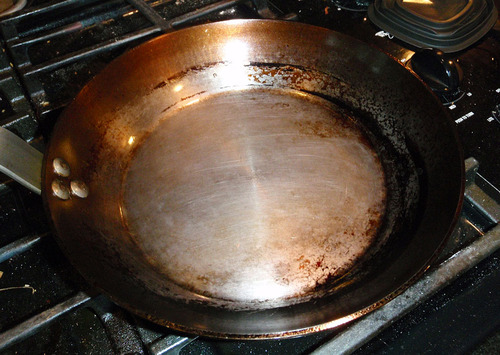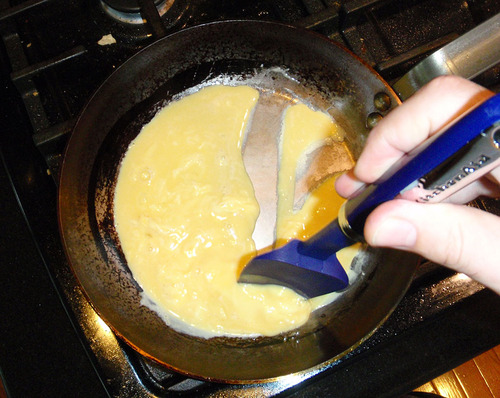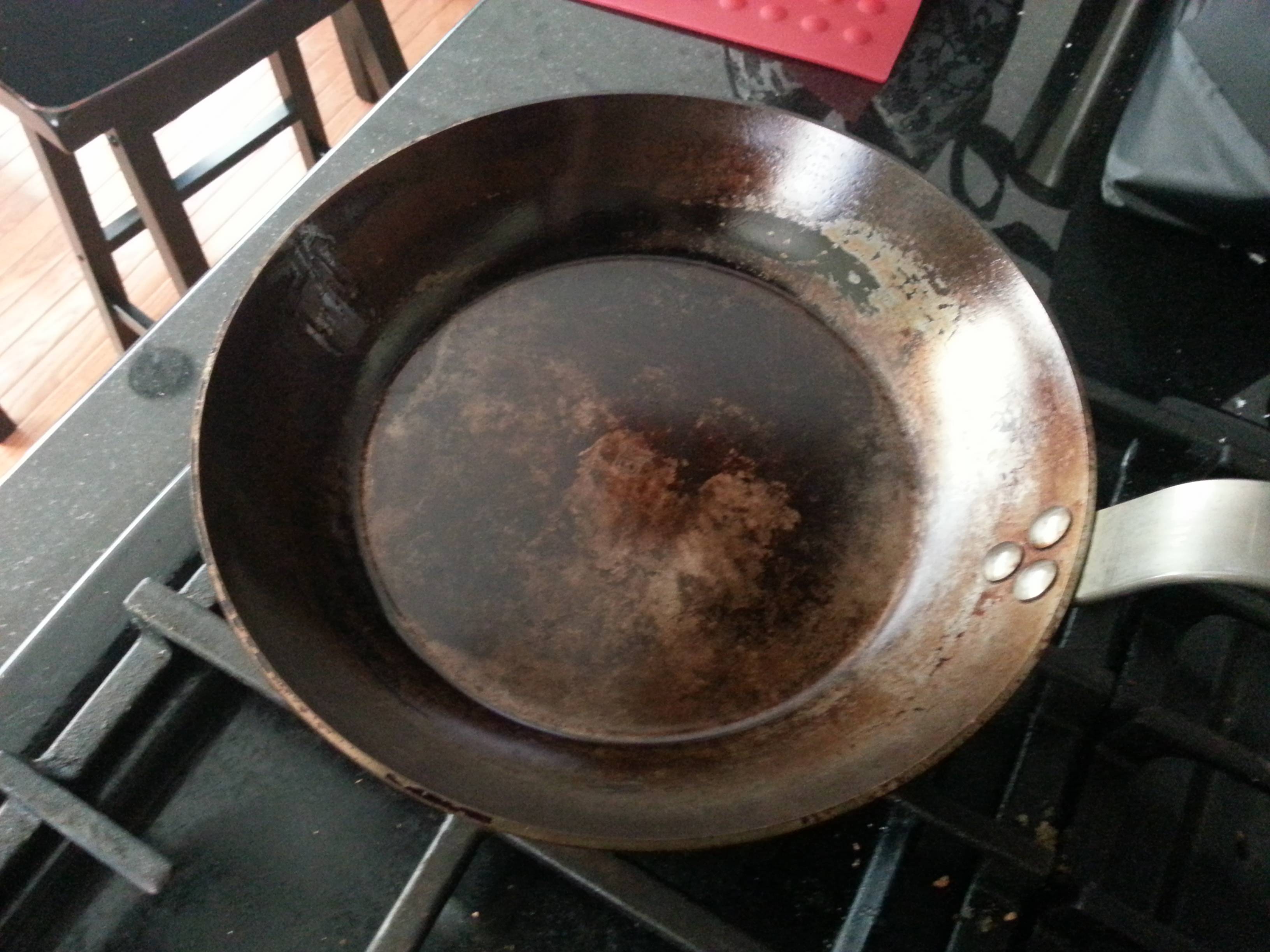I can't speak authoritatively, but I do have all three types and have had good luck with my seasonings, so I'll share what I do.
For cast iron, I use solid vegetable fat exclusively (Crisco). I did the original seasoning by coating it in fat and baking in the oven. To clean it, I use salt, Crisco and a paper towel to get any food bits off. I then get the pan hot and wipe it down with a little more Crisco. It's not PTFE nonstick, but pretty good.
For my forged iron DeBuyer fry pan, I followed the manufacturer's recommendation for initial seasoning: put enough oil in the pan (I use canola) to coat the bottom. Heat to smoking. I swirled the hot oil around to coat the sides a bit. Let it cool, pour and wipe out the oil.
The thing I've found is it takes quite a bit of use to develop the seasoning. Here's a picture after about a month's use - note how dark the sides are getting (the bottom is less dark because I learned a green scrubby pad (Scotch-Brite) will remove the seasoning entirely. Oops!).

I did some scrambled eggs for the sake of science, without adding any extra oil to the pan. They behaved as nicely as any PTFE coated pan I've ever used.

Today the entire bottom of the pan is that rich mahogany color, and a fried egg slides around in it like one of those goofy AS SEEN ON TV ads.
EDIT: Used the pan for over easy eggs this morning and snapped a new picture. This is about 3 months after the last photo.

Normally I can just wipe it out with a paper towel. If I've been cooking bacon or something that left residue, I'll run water into the pan while it's still ripping hot, then wipe it out gently with a sponge.
After that I heat the pan up and add just a tiny bit of canola oil. I wipe the oil around with a paper towel and put the pan away.
For carbon steel--like my wok--I treat it exactly the same as the DeBuyer pan. Clean gently, after each use get the pan ripping hot and wipe it down with some oil.



